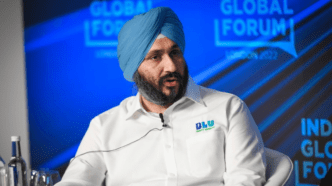A group of investors is planning to inject $30 million into BluSmart EV, an Indian cab-hailing startup that abruptly ceased operations last month. The proposal, however, comes with a condition: BluSmart co-founder Anmol Singh Jaggi must resign. This move aims to address the company’s financial issues, including pending employee salaries and operational liabilities.
The Investment Proposal and Its Conditions
The proposed $30 million funding will be provided as unsecured debt. The capital is intended to cover BluSmart’s operational liabilities, such as overdue employee salaries and outstanding dues. Key investors, including BP Ventures and Switzerland-based ResponsAbility, are leading the discussions. While these investors declined to comment when contacted, they have shown urgency in resolving the situation and restarting the service.
Jaggi’s resignation is central to the deal. Although he has not formally signed his resignation, sources indicate that he has verbally agreed to step down from the BluSmart board, contingent on receiving assurance that he will not face legal repercussions from the company’s investors.
BluSmart’s operations came to a halt last month after a probe was launched into Gensol Engineering, the company’s EV lessor and Jaggi’s other business venture. The suspension affected riders, investors, and the 600 employees who have not received their salaries since at least March. The startup has accumulated 2.5 billion Indian rupees (~$30 million) in dues, with a portion of these funds—500 to 600 million Indian rupees—owed to employees.
The suspension also affected the company’s fleet of 8,700 electric vehicles (EVs). Many of these vehicles have been left idle, risking damage to their batteries and components if services don’t resume soon.
Protests and Relief for BluSmart Drivers
The shutdown has led to protests by BluSmart drivers in New Delhi, some of whom have gone on strike. In a sign of relief, Evera Cabs, a Delhi-based EV cab-hailing service, has announced the addition of 500 EVs leased to them by BluSmart’s lenders. Additionally, Evera is planning to add 1,000 more EV cabs previously associated with BluSmart, potentially offering opportunities to some of the affected drivers.
Investors are determined to preserve BluSmart’s branding. They are concerned that allowing other companies like Evera or even Uber to use BluSmart’s fleet could erode its market identity. This is why they are pushing for a restart of operations within the next three weeks.
Despite investors’ efforts, BluSmart’s comeback faces some hurdles, particularly corporate governance issues. There is also ongoing scrutiny of Gensol Engineering, which impacts BluSmart indirectly. The Indian corporate affairs ministry has launched an investigation into both companies.
While Jaggi’s resignation appears to be a key step in the resolution process, there is uncertainty regarding the outcome. The Indian stock exchange regulator had previously ordered Jaggi and his brother to resign from Gensol, but this directive does not apply to BluSmart, which is a private company.
Strategic Offers and Buyout Interests
Recently, Eversource Capital, a climate investment fund backed by BP, expressed interest in acquiring BluSmart in a slump sale. The fund proposed merging BluSmart with Lithium Urban, a B2B fleet operator. However, BluSmart’s board rejected the offer, as it valued the company at a 60% discount from its previous $300 million valuation.
Lithium Urban itself is struggling with mounting losses, and many of its vehicles are nearing the end of their useful life. The company’s original founder, Sanjay Krishnan, has also abandoned the business, further complicating the situation.
Meanwhile, Adani Group, an Indian conglomerate, has shown interest in acquiring BluSmart to integrate its fleet into Adani’s airport operations, where it already partners with Uber. However, Adani Group has not provided any official comments on this potential acquisition.
Despite these challenges, BluSmart’s investors remain hopeful that the startup can position itself to attract further investments from strategic players like Eversource Capital, Uber, or Adani once operations resume.













